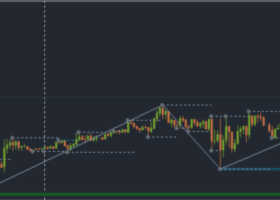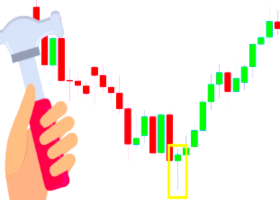Welcome back from the long holiday weekend. Before we left for our nation’s birthday celebration, markets had a little party of their own: The Dow had broken 17,000, the Standard & Poor's 500 Index had touched a record high and was spitting distance from crossing 2,000. Even the small-cap indexes such as the Russell 2000 and the S&P 600 have notched new highs. And the Nasdaq, up 255 percent since the March 2009 low, is less than 15 percent away from the record set in the dot-com-era market of 2000.
Despite evidence that new highs are bullish -- we don’t get them during bear markets -- the commentariat and much of the news media sees this as a matter of great concern. Consider a perusal of this morning headlines:
• ``Why the 17,000 Dow is bound to crash''
• ``With Stocks So High, Should Investors Move to Cash?''
• ``5 reasons not to watch for a stock market correction ''
• ``What Investors Are Worried About Today ''
Some of these articles make for interesting reading, but they don’t make for especially good investing advice. Why? I can think of three reasons:
1) Corrections are a normal part of any market cycle: Every market has regular pullbacks and consolidations. Since the market made its lows in March 2009, it has had nine corrections from more than 6 percent to almost 22 percent, beginning with a 9.1 percent decline five years to the day from tomorrow.
If these are a normal part of any market cycle, why do we fear them? Like the change of seasons, we should accept them as simply inevitable. Instead of fear, consider making preparations so that when the inevitable comes, you have a plan. The alternative is an emotional reaction -- and that’s never good for portfolios.
2) They are all but impossible to forecast: As we have detailed far too many times, people are terrible at making predictions. You draw conclusions from a single data point. You don’t know what the economy is going to do, or where interest rates are going. You can't even forecast your own behavior.
Forecasting the stock market is even harder. Yet people constantly try to time the market, pick the exact points to jump in and out. No one does this especially well, and that is before we consider costs and taxes.
Be aware of when you are letting predictions slip into your process.
3) Look for a correction and your selective perception takes over: Decide that a correction or crash is coming, and you will begin to see more and more evidence confirming that expectation. This is classic confirmation bias, where we find what we are hoping or expecting to see. Not only that, but we give it undue weight in our mental models, and we remember it longer and more clearly than the data that contradicts our expectations.
Confirmation bias doesn't only affect bears; the same is true for bulls. Believe that the rally or economic expansion will continue and soon after, everything you see will support that thesis. Shopping centers are very busy (bears see nobody carrying packages), restaurants are full (especially the cheaper ones, note the ursines), and of course, the market keeps reaching new highs (on less and less volume).
It's important to understand our own tendency to look for confirming evidence, rather than seeking to disprove our thesis. It is a problem inherent in human wetware.
Just because corrections are inevitable, doesn't mean you should be complacent. Your levels of concern about a correction and your response should be a function of whether you are a trader or an investor.
Traders concerned about an imminent drop of 5 percent to 15 percent can take steps to reduce risk. Lighten up your exposure by using less leverage. Carry smaller overnight positions. Look at your position sizing, especially in light of correlated assets.
The approach for investors is very different: Anyone with a longer-term time horizon should look at a correction as an opportunity. Use any market decline to rebalance adding to those asset classes that have fallen. Review your portfolio, looking for holdings to trim or eliminate beforehand.
Investor changes, unlike those of traders, should be far more incremental. Less is more when it comes to making alterations to well-thought-out plan.



